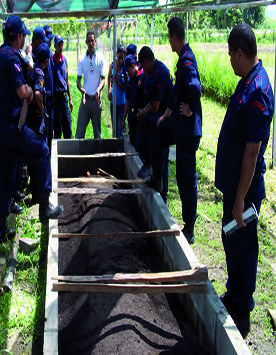Point and Circle and Socialist Graft as INIA-Community integration strategies: a productive socio-bio-cultural research
Abstract
For about 12,000 years since the Neolithic transition, that is, the beginnings of the domestication of food resources and the formation of permanent communities, there has been a need to incorporate local knowledge into development processes, transferring it from one community to another. The Greek historian Herodotus incorporated the cultural knowledge of some peoples into his studies as mechanisms for transferring that knowledge to the most “advanced” groups (Macías and Marrero, 2011).
References
Macías Reyes, R. y M. Marrero Sánchez. 2011. La Antropología
en la Literatura Científica. Reflexiones.
Revista electrónica: Contribuciones a las Ciencias
Sociales. http://www.eumed.net/rev/cccss/12/mrms.
Htm
Varsavsky O. 1969. Ciencia, política y cientificismo. Centro
Editor de América Latina, Buenos Aires. 36 pp
en la Literatura Científica. Reflexiones.
Revista electrónica: Contribuciones a las Ciencias
Sociales. http://www.eumed.net/rev/cccss/12/mrms.
Htm
Varsavsky O. 1969. Ciencia, política y cientificismo. Centro
Editor de América Latina, Buenos Aires. 36 pp

Published
2012-08-08
How to Cite
Barreto, T., Becerra, B., & Benítez, Z. (2012). Point and Circle and Socialist Graft as INIA-Community integration strategies: a productive socio-bio-cultural research. INIA Divulga, 22(22), 50-53. Retrieved from http://publicaciones.inia.gob.ve/index.php/iniadivulga/article/view/955
Section
Artículos

